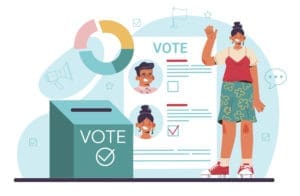According to a report published by the Center for Immigration Studies in 2018, 67.3 million U.S. residents (a combination of native-born, legal immigrants, and illegal immigrants) speak a language other than English in their homes. This represents a 100% increase from 1990. While few people are surprised that California leads the nation in non-English speakers, with 44.6% of their population speaking a language other than English at home, other states such as New Jersey and New York have high concentrations at 31.7% and 31.0%, respectively. Because of the growth of our non-English speaking population, more states, including New Jersey, are working towards expanding translation requirements.
 New Jersey has a very diverse population. In fact, their residents speak over 150 different languages. Yet, without a state law in place, there are no requirements for information, forms, or other resources to be provided in any language other than English. While the need to better serve non-English speakers is not new, it recently became strikingly apparent when the state opened up provisions allowing undocumented immigrants to obtain driver’s licenses. Without translated information and resources, non-English speakers ended up frustrated and frequently turned away at the DMV because they didn’t have the documentation required, were unsure of the process, or even provided inaccurate information from DMV employees.
New Jersey has a very diverse population. In fact, their residents speak over 150 different languages. Yet, without a state law in place, there are no requirements for information, forms, or other resources to be provided in any language other than English. While the need to better serve non-English speakers is not new, it recently became strikingly apparent when the state opened up provisions allowing undocumented immigrants to obtain driver’s licenses. Without translated information and resources, non-English speakers ended up frustrated and frequently turned away at the DMV because they didn’t have the documentation required, were unsure of the process, or even provided inaccurate information from DMV employees.
Other challenges for New Jersey include voting resources and forms. For example, even though Arabic is one of the most popularly spoken languages, voting forms weren’t available in Arabic until 2018. Before that year, residents of the Arab community had a difficult time being represented in the voting process, which added to their challenges of discrimination and exclusion.
A new bill, sponsored by Senator Teresa Ruiz (D), will require state agencies to provide non-machine translation of the fifteen most spoken languages in New Jersey if passed, including Spanish, Chinese, Arabic, Gujarati, Korean, Hindi, Portuguese, and Polish. The specific items that would require translation have not been identified, and if the bill passes, the state will have 90 days to establish further details and a plan of action.
Are you aware of expanding translation requirements in your state?
Whether or not you are required to provide resources, forms, and other documentation in multiple languages, it’s often in a business’s best interest to serve significant populations of non-English speakers with materials they can read and understand. Our professional translators at The Perfect Translation provide non-computerized services to translate various legal documents accurately. From immigration to education and marketing, our translators combine industry expertise and language fluency to ensure your job is completed correctly the first time. Contact us today to learn more about our services and get a free quote.

Leave a Reply